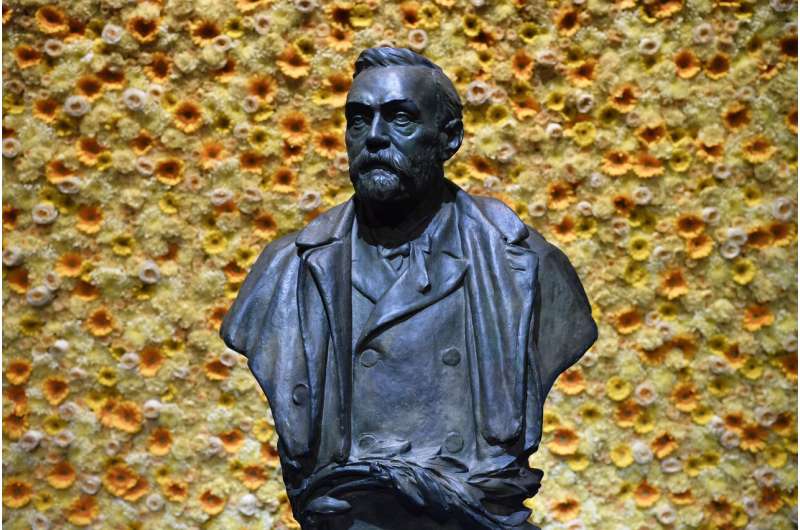Nobel week continues with the Chemistry Prize

The 2019 Nobel Prize in Chemistry will be announced Wednesday, a day after the Physics award was given to a Canadian-American cosmologist and two Swiss scientists.
On Monday, the award for Physiology or Medicine went to two Americans and one British scientist. And on Thursday come two literature laureates, while the coveted Nobel Peace Prize is Friday and the economics award on Monday.
The 2018 literature prize was suspended after a scandal rocked the Swedish Academy. The body plans to award it this year, along with announcing the 2019 laureate.
In other Nobel awards this year, Canadian-born James Peebles, 84, an emeritus professor at Princeton University, on Tuesday won the Physics Prize for his theoretical discoveries in cosmology together with Swiss scientists Michel Mayor, 77, and Didier Queloz, 53, both of the University of Geneva. The latter were honored for finding an exoplanet—a planet outside our solar system—that orbits a solar-type star, the Nobel committee said.
On Monday, two Americans and one British scientist— Drs. William G. Kaelin Jr. of Harvard Medical School and the Dana-Farber Cancer Institute, Gregg L. Semenza of Johns Hopkins University and Peter J. Ratcliffe at the Francis Crick Institute in Britain and Oxford University—won the prize for advances in physiology or medicine. They were cited for their discoveries of "how cells sense and adapt to oxygen availability."
With the glory comes a 9-million kronor ($918,000) cash award, a gold medal and a diploma. The laureates receive them at an elegant ceremony on Dec. 10—the anniversary of Nobel's death in 1896—in Stockholm and in Oslo, Norway.
Prize founder Alfred Nobel —a Swedish industrialist and the inventor of dynamite—decided the physics, chemistry, medicine and literature prizes should be awarded in Stockholm, and the peace prize in Oslo. His exact reasons for having an institution in Norway handing out the peace prize is unclear, but during his lifetime Sweden and Norway were joined in a union, which was dissolved in 1905.
The economics prize—officially known as the Bank of Sweden Prize in Economic Sciences in Memory of Alfred Nobel—wasn't created by Nobel, but by Riksbanken, Sweden's central bank, in 1968. It is the Royal Swedish Academy of Sciences that was tasked with selecting the winner.
© 2019 The Associated Press. All rights reserved.




















